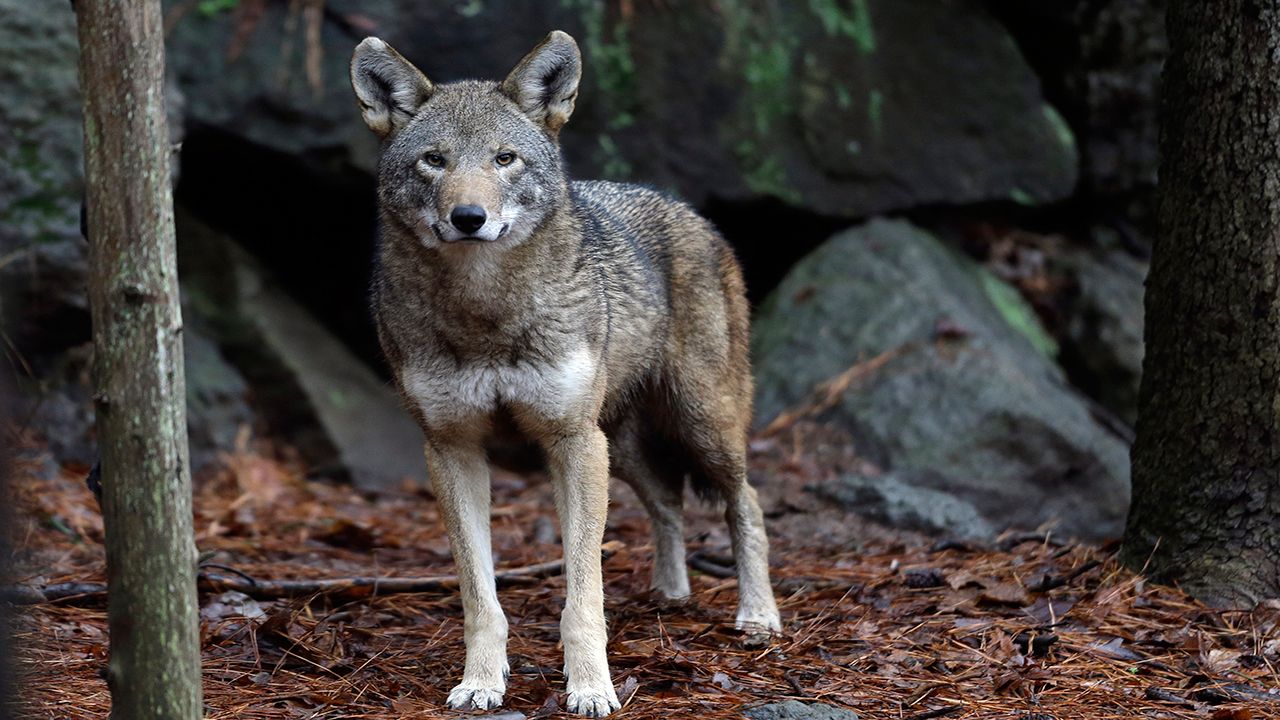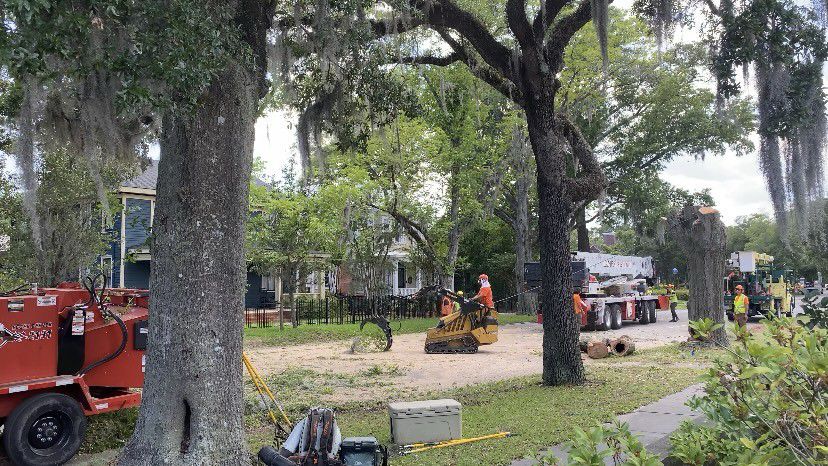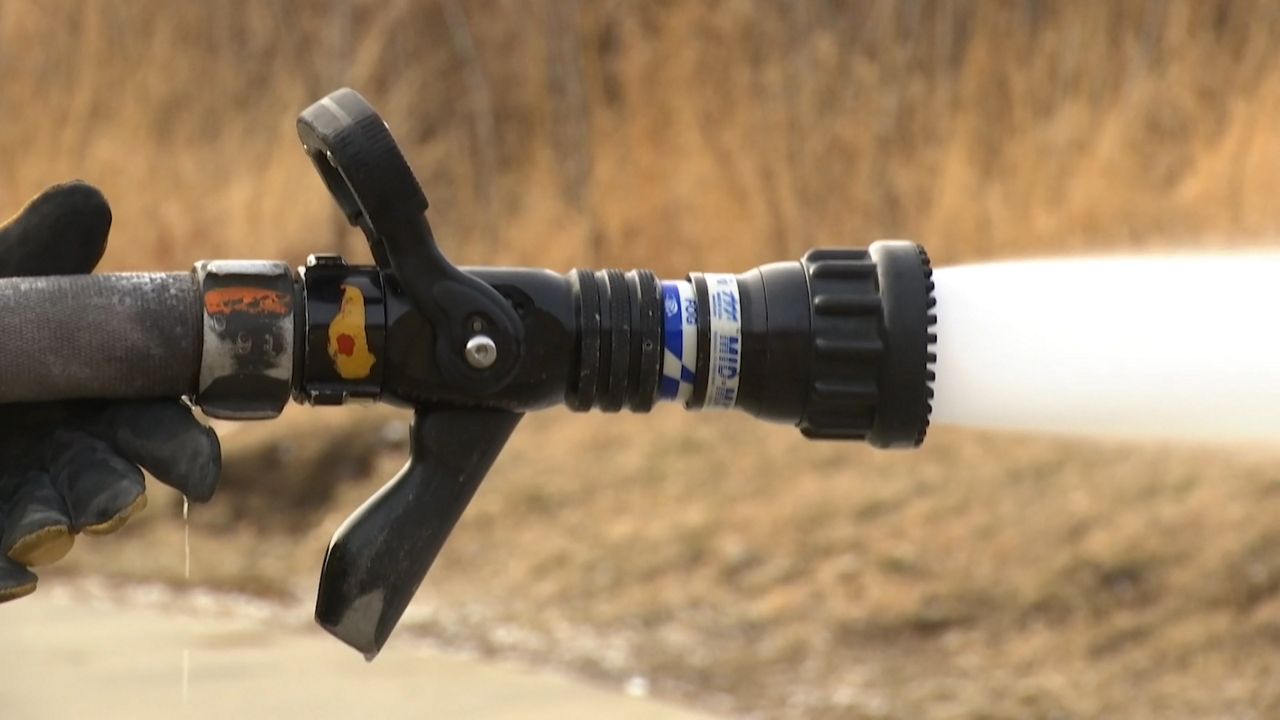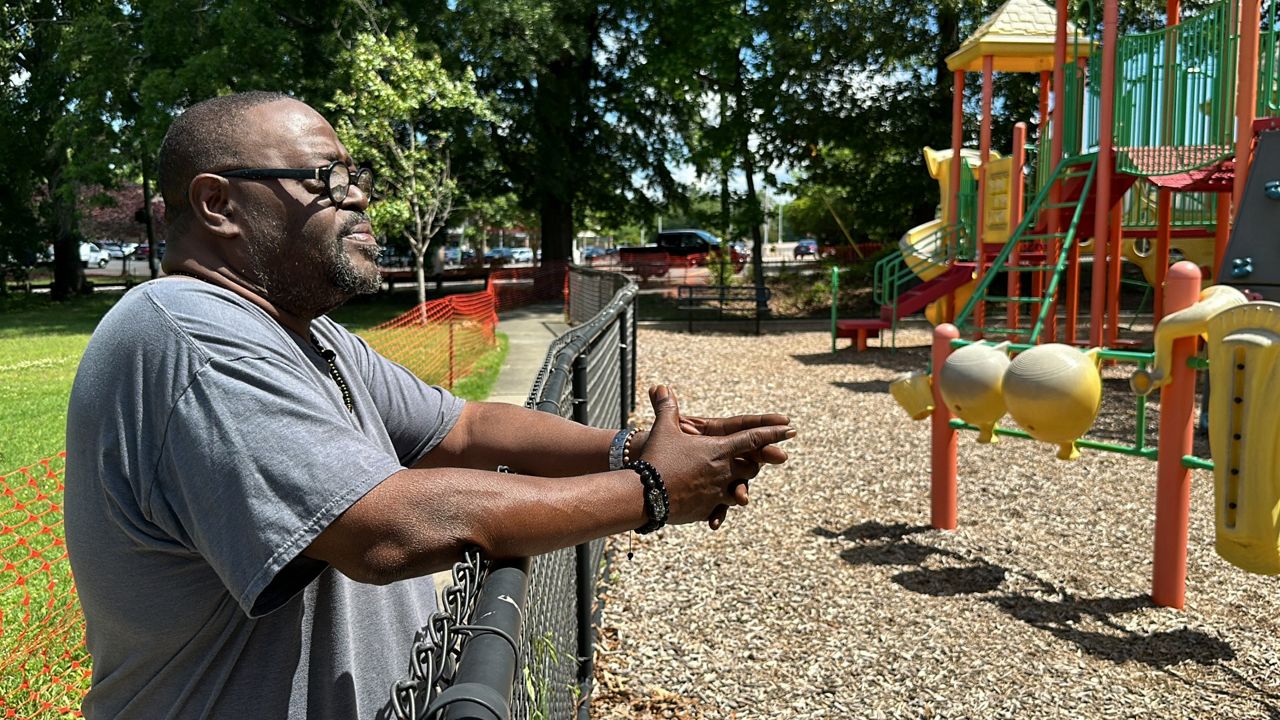WAKE COUNTY, N.C. — The North Carolina Department of Agriculture and Consumer Services is on high alert as the threat of highly pathogenic avian influenza (HPAI), or bird flu, increases. Since just last week, the virus has been found at seven commercial poultry facilities in Johnston and Wayne counties.
Highly pathogenic avian influenza (HPAI) has been found at seven N.C. commercial poultry facilities
Wild birds are known to spread the virus through their feces
This strain of bird flu can kill 75% or more of a flock if it is not controlled
N.C. State has a poultry science department as well as a veterinary school and, between the two, they’re working to help the industry weather the storm that the bird flu is creating.
Matt Koci, a professor of viral immunology at N.C. State, said this strain of bird flu can kill 75% or more of a flock, and this virus seems to be more widespread.
“We are always doing surveillance. Usually when we find it, we are able to jump on it real quick and keep it contained to just the first farm that it was found on. Again, this year is unusual that so many wild birds seem to be having it, that brush fires are popping up all over the place, and we’re having to run them down and try and stamp them out as quick as we can,” Koci said.
Koci said North Carolina produces a lot of broiler chicken meat so if the bird flu gets worse it could cause shortages or price increases at the grocery store.
Backyard chickens are also at risk, and that’s something Ann Larsen, the owner of Little Birdie Hatchery in Wake Forest, is navigating.
Larsen’s chickens are used to being free range, but that hasn’t been the case since about February when the bird flu started popping up.
“I am hoping and praying by keeping them in the run during the day is still enough to keep them safe,” Larsen said.
Wild birds are known to spread the virus, and backyard chickens can catch it if they come into contact with feces from a sick wild bird.
“I guess about three weeks ago or four weeks ago there was a hawk found just on the south side of Falls Lake that was diagnosed with the bird flu, so yes it’s getting too close for comfort,” Larsen said.
People can also unknowingly spread the virus if they step in the feces and wear the same shoes somewhere else.
“Worst-case scenario would be one of mine would catch it, it would be one of the big ones. Yes, I would have to shut down and wait however long the period would be before I could start over,” Larsen said.
Bird flu often spreads very quickly and is a painful way for birds to die. Out of precaution, Larsen has temporarily stopped selling chicks, but when she resumes she’ll likely do curbside pickup only in order to limit the risk of exposing her animals.
“It would definitely be a financial issue, and I would have to find something else to do in the meantime, but it's not something I like to think about,” Larsen said.
Koci also says this strain of bird flu is not known to affect humans.
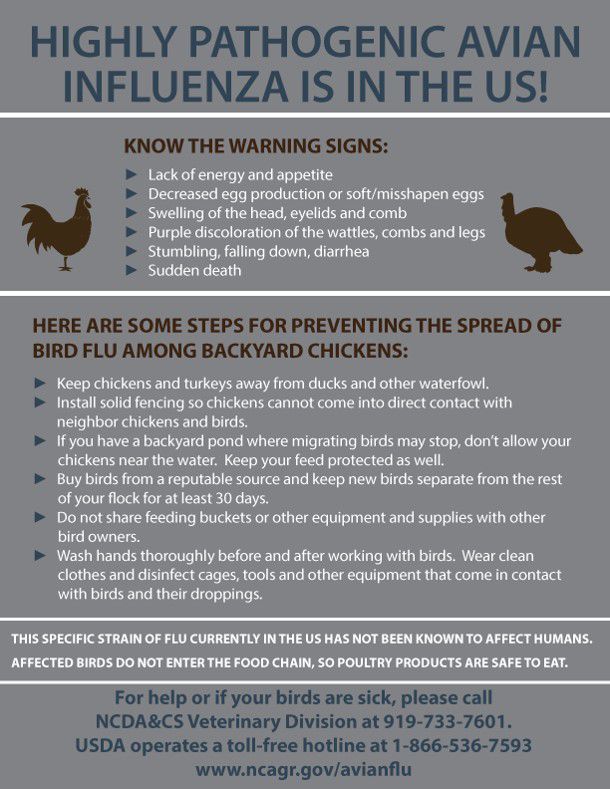
Some warning signs and symptoms of bird flu in chickens include lack of energy and appetite as well as decreased egg production.
On Tuesday, State Veterinarian Mike Martin announced that all North Carolina poultry shows and public sales will be suspended due to the threat of HPAI. This includes all exhibitions, farm tours, shows, sales, flea markets, auction markets, swaps and meets pertaining to poultry and feathered fowl in North Carolina. These activities are suspended until further notice.
“This suspension is due to the continued spread of HPAI that has affected commercial and backyard flocks in numerous states, including North Carolina,” Martin said. “We do not make this decision lightly. HPAI is a serious threat to our poultry industry, and this is a precaution to help limit the introduction of the virus to backyard and commercial flocks.”
According to the state, more than 90,000 turkeys and more than 280,000 broilers have been depopulated to prevent further spread of the virus in North Carolina.







